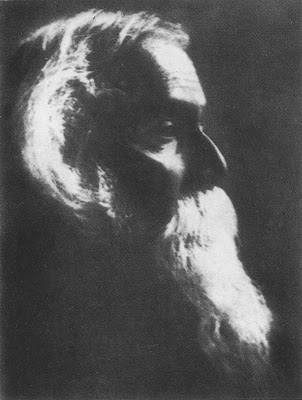The Mysticism of Rabindranath Tagore

What Tagore's Poetry Teaches Us About God
The Journey.....
Rabindranath Tagore (May 7, 1861 - August 7, 1941) the bard of Bengal immaculately brought out the essence of Eastern spirituality in his poetry like no other poet. His spiritual vision, as he himself said, is imbued "with the ancient spirit of India as revealed in our sacred texts and manifested in the life of today."
Tagore's Mystical Quest
Swami Adiswarananda of the Ramakrishna-Vivekananda Center of New York, in his preface to 'Tagore: The Mystic Poets' writes, "The inner-seeking spirituality of India infused all of Tagore's writing. He wrote in many genres of the deep religious milieu of Hinduism. The values and core beliefs of the Hindu scriptures permeated his work." Says the Swami: "Rabindranath Tagore's philosophical and spiritual thoughts transcend all limits of language, culture, and nationality. In his writings, the poet and mystic takes us on a spiritual quest and gives us a glimpse of the infinite in the midst of the finite, unity at the heart of all diversity, and the Divine in all beings and things of the universe."
Tagore's Spiritual Beliefs
Tagore believed that "True knowledge is that which perceives the unity of all things in God." Tagore through his vast body of immortal literary works taught us that the universe is a manifestation of God, and that there is no unbridgeable gulf between our world and God's, and that God is the one who can provide the greatest love and joy.
The Ubiquity of God in Tagore's Works
Yeats writes: "These verses … as the generations pass, travellers will hum them on the highway and men rowing upon the rivers. Lovers, while they await one another, shall find, in murmuring them, this love of God a magic gulf wherein their own more bitter passion may bathe and renew its youth… The traveller in the read-brown clothes that he wears that dust may not show upon him, the girl searching in her bed for the petals fallen from the wreath of her royal lover, the servant or the bride awaiting the master's home-coming in the empty house, are images of the heart turning to God. Flowers and rivers, the blowing of conch shells, the heavy rain of the Indian July, or the moods of that heart in union or in separation; and a man sitting in a boat upon a river playing lute, like one of those figures full of mysterious meaning in a Chinese picture, is God Himself…"


Comments
Post a Comment